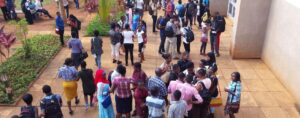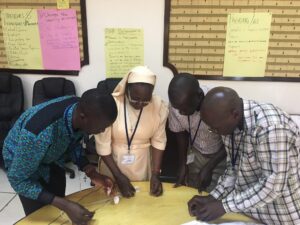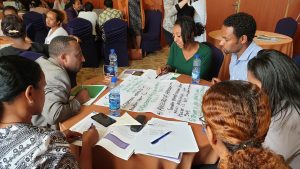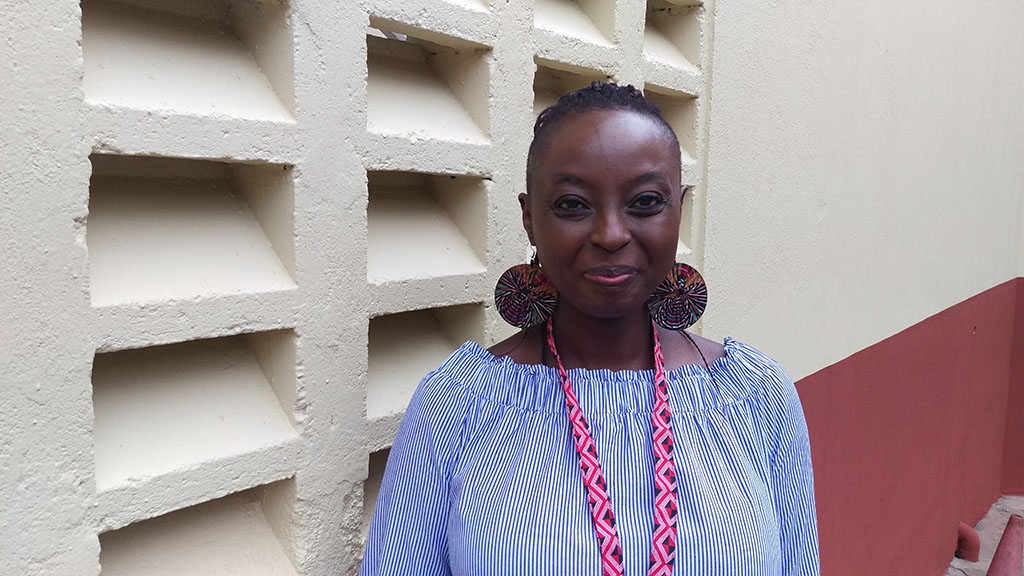
For effective change, all stakeholders need to recognize the importance of critical thinking
Within the TESCEA project, the Kenya-based Association for Faculty Enrichment in Learning and Teaching (AFELT) is leading the design and roll out of professional development approaches that will foster pedagogic competencies amongst university lecturers and develop instruments to recognize good teaching practice within and beyond the project.
The third post in our series of TESCEA partner introductions to the project comes from Dr Kendi Muchungi, Staff and Student Engagement Coordinator for AFELT and an academic in computer sciences at Africa Nazarene University. She discusses the importance of iterative approaches and gaining high-level buy-in to new pedagogical approaches in East African universities.
Unfortunately, for many students in East Africa, our education systems facilitate the kind of teaching that requires students to regurgitate exactly what they were taught. The existing systems are structured in such a way that it doesn’t really matter how learning is facilitated so long as teachers cover the content and students can say that they were given the notes and information they needed; it doesn’t place any responsibility on the students to engage critically.
Most students don’t know there is an issue until they encounter difficulties in finding a job or in having the skills they need to do a graduate-level job. Until we recognize issues and start understanding why we can’t think critically then we can’t evaluate these issues to come up with localized solutions.
In developing new pedagogical approaches in TESCEA, there are some important things we are considering:
Engagement with a range of stakeholders across the system – We need to look at how we can empower those that are in authority [within universities] to understand the importance of having new pedagogical approaches. If the impetus starts from the top, with a few teachers working on the ground who are also spearheading these approaches, then we can meet somewhere in the middle and it will work because we are all ready for that kind of change.
However, if you are a lone fish swimming against the current trying to introduce new pedagogical approaches in isolation then it is really hard, because the assumption is that you are actually not doing your job. And this assumption is backed up by students who, because they are not simply being given information as they expect, feel like you are the one who is not doing the work even though you are applying new pedagogical approaches.
If university leaders are empowered, lecturers enlightened, and students are encultured such that all these players expect to enable, facilitate, and learn (respectively), the entire system will be ready to adopt the learning approaches being introduced by the TESCEA project.
Taking an iterative approach – Not everything has to be done immediately. Every long journey starts with the first step. It is best to take one aspect and try and fix it and figure out how that can be replicated through the lessons learned and then adapt that to the other sessions. Doing everything in one go is a heavy task and more difficult to adapt as things evolve and in response to different contexts.
The approach we are taking in TESCEA is to begin with individual courses within selected degrees in four universities in Tanzania and Uganda. However, the emphasis is on wider change. As the project moves on, using the learnings from the initial courses, the universities will assess their existing teaching and learning policies, strategies and processes and develop plans to revise these policies.
***
Transforming Employability for Social Change in East Africa (TESCEA) is helping young people in Tanzania and Uganda to use their skills and ideas to tackle social and economic problems. With partners in Tanzania, Uganda and Kenya, TESCEA supports universities, industries, communities and government to work together to create an improved learning experience for students – both women and men. This improved learning experience fosters the development of critical thinking and problem-solving skills, and allows for practical learning beyond the classroom that improves a graduate’s employability.
The TESCEA partnership is led by INASP (UK), working with Mzumbe University (Tanzania), University of Dodoma (Tanzania), Gulu University (Uganda), Uganda Martyrs University (Uganda), Association for Faculty Enrichment in Learning and Teaching (Kenya), LIWA Programme Trust (Kenya) and Ashoka Africa (Kenya).
TESCEA is funded by the UK’s Department for International Development (DFID) as part of DFID’s SPHEIR (Strategic Partnerships for Higher Education Innovation and Reform) programme to support higher education transformation in focus countries in Sub-Saharan Africa, Asia and the Middle East.

 Previous Post
Previous Post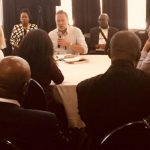 Next Post
Next Post